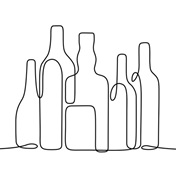The overwhelming majority of these med-taking brainiacs said they indulged in order to "improve concentration" and 60 percent said they did so on a daily or weekly basis.
The 1 427 respondents - most of them in the United States - completed an informal, online survey posted on the "Nature Network" Web forum, a discussion site for scientists operated by the Nature Publishing Group.
More than a third said that they would feel pressure to give their children such drugs if they knew other kids at school were also taking them.
"These are academics working in scientific institutions," said Ruth Francis, who handles press relations for the group.
ADD drug most popular
The survey focused on three drugs widely available by prescription or via the Internet. Ritalin, a trade name for methylphenidate, is a stimulant normally used to treat attention-deficit hyperactivity disorder, especially in children. Modafinil, marketed at Provigil, is prescribed to treat sleep disorders, but is also effective against general fatigue and jet lag.
Both medications are common currency on college campuses, used as "study aids" to sharpen performance and wakefulness.
"It doesn't seem to be causing too much trouble since most (students) use the drugs not to get high but to function better," said Brian Doyle, a clinical psychiatrist at Georgetown University Medical Centre.
"When exams are over, they go back to normal and stop abusing the drugs."
The third class of drugs included in the survey was beta blockers, prescribed for cardiac arrhythmia and popular among performers due to its anti-anxiety effect.
Scientists get drugs off internet
Of the 288 scientists who said that had taken one or more of these drugs outside of a medical context, three-fifths had used Ritalin, and nearly half Provigil. Only 15 percent were fans of beta blockers.
More than a third procured their meds via the Internet, with the rest buying them in pharmacies. Other reasons cited for popping pills were focusing on a specific task and counteracting jet lag.
Almost 70 percent of 1 258 respondents who answered the question said they would be willing to risk mild side effects in order to "boost your brain power" by taking cognitive-enhancing drugs. Half of the drug takers reported such effects, including headaches, jitteriness, anxiety and sleeplessness.
Increase in use of cognitive enhancers
Previous research has shown that, as the boundary between treating illness and enhancing wellbeing continues to blur, taking performance-boosting products continues to gain in cultural acceptance.
"Like the rise in cosmetic surgery, use of cognitive enhancers is likely to increase as bioethical and psychological concerns are overcome," wrote Nature in a commentary.
In the survey, 80 percent of all the scientists - even those who did not use these drugs - defended the right of "healthy humans" to take them as work boosters, and more than half said their use should not be restricted, even for university entrance exams.
More than 57 percent of the respondents were 35 years old or younger. – (Sapa)
April 2008
Read more:
Debate over pill-popping




 Publications
Publications
 Partners
Partners










